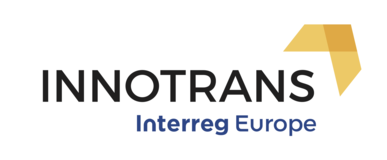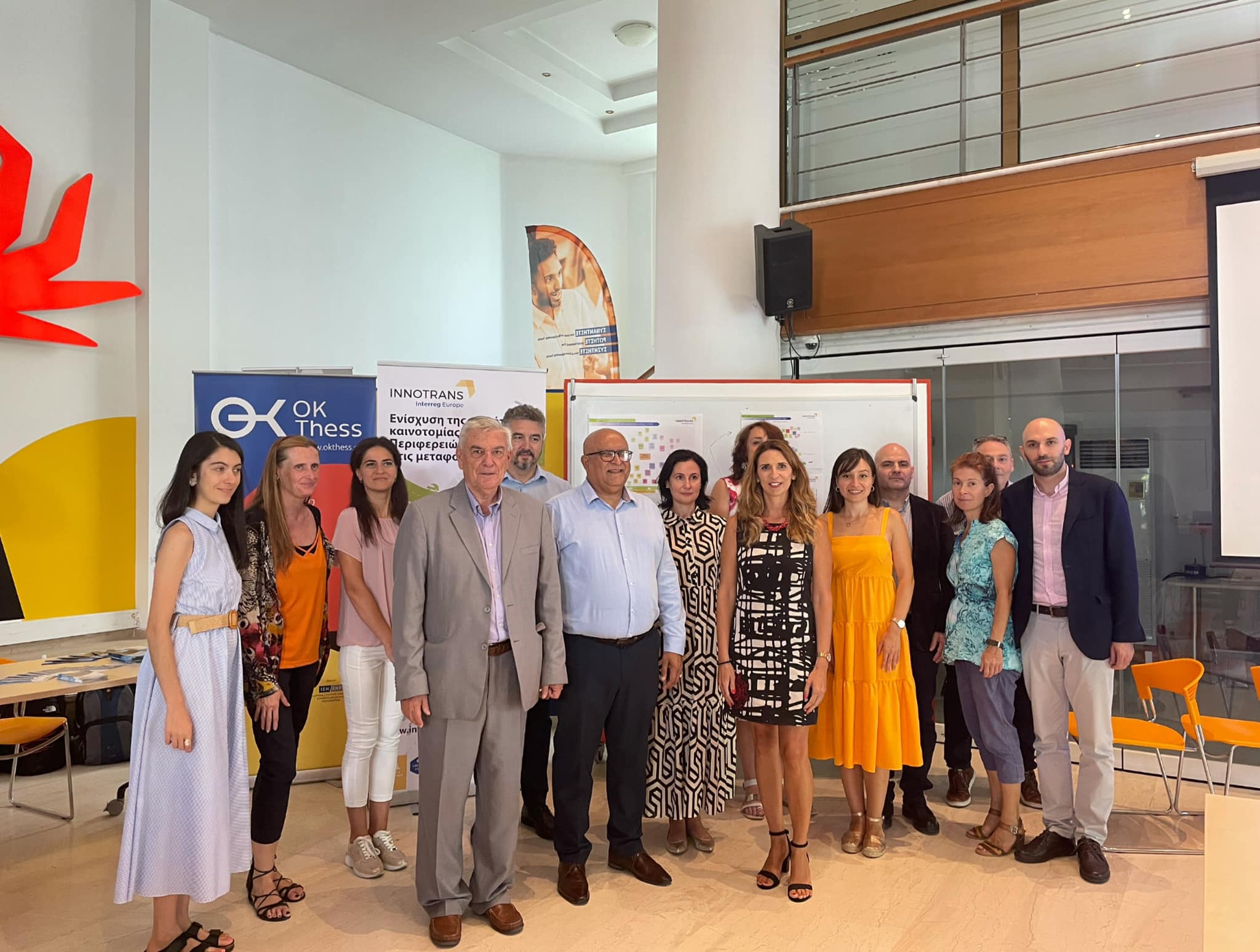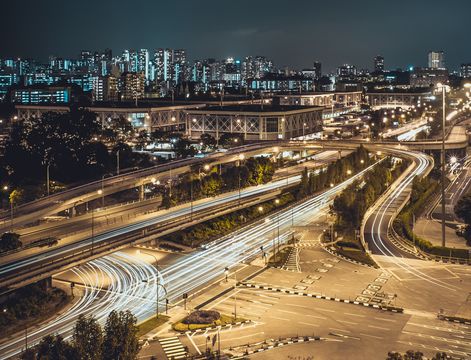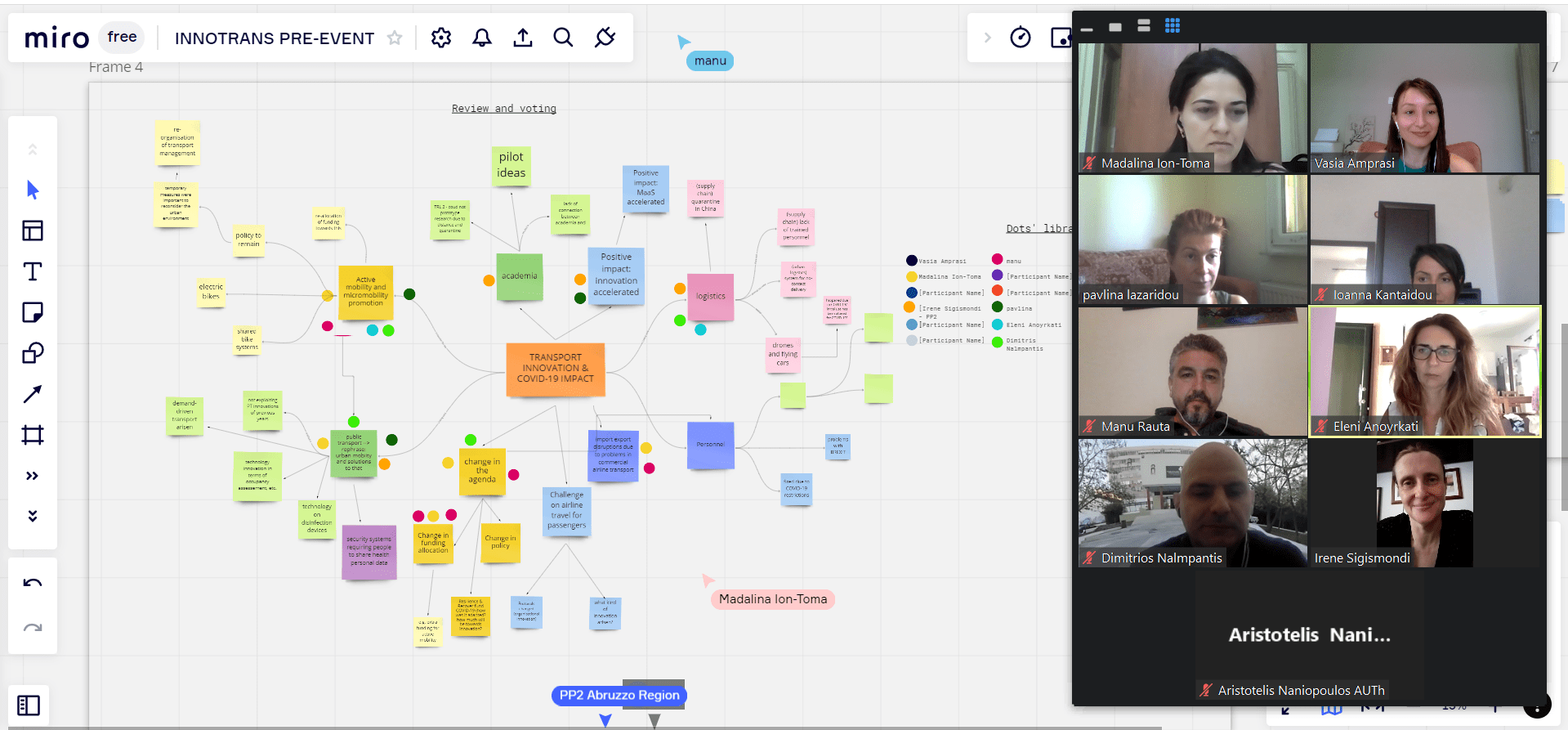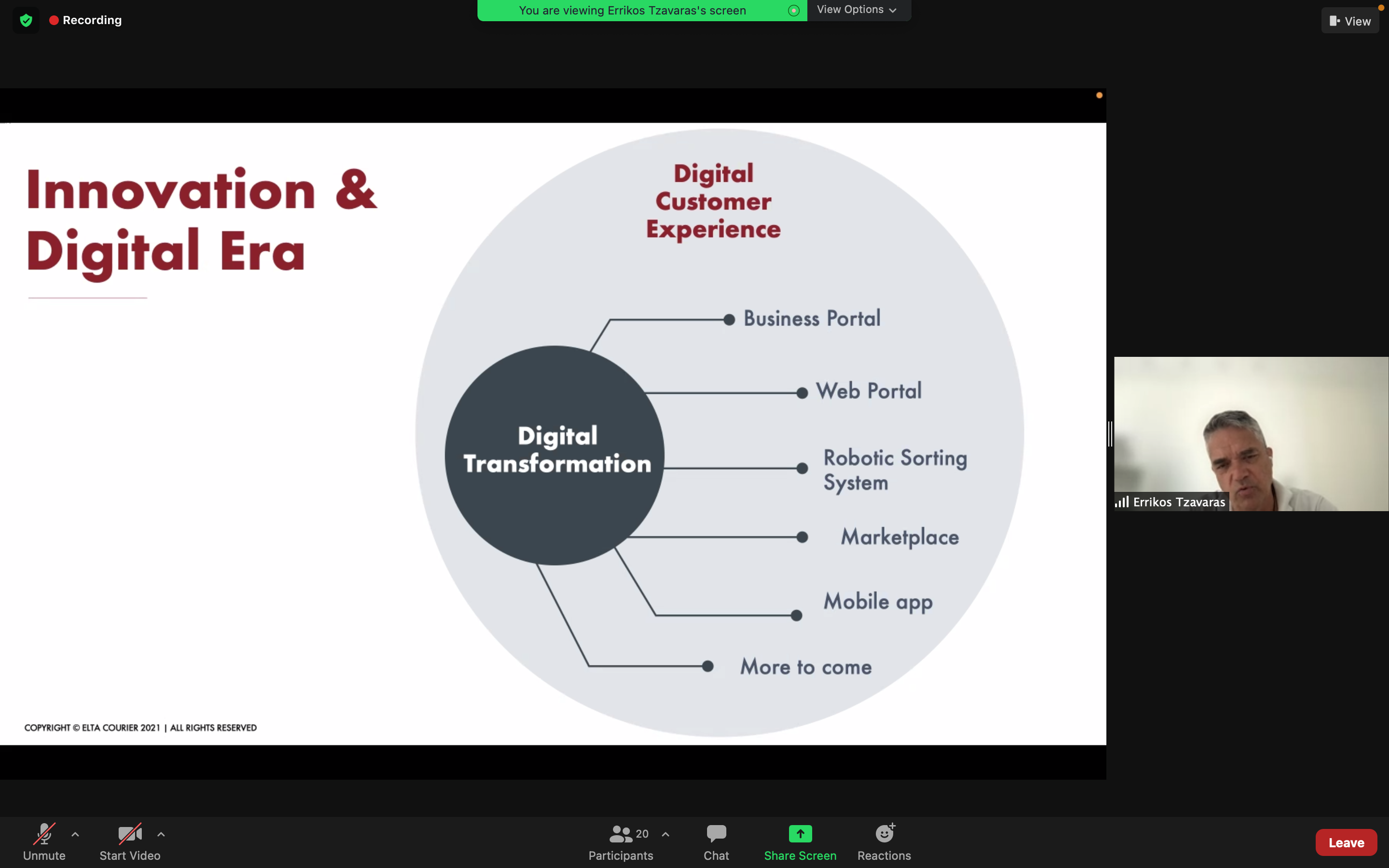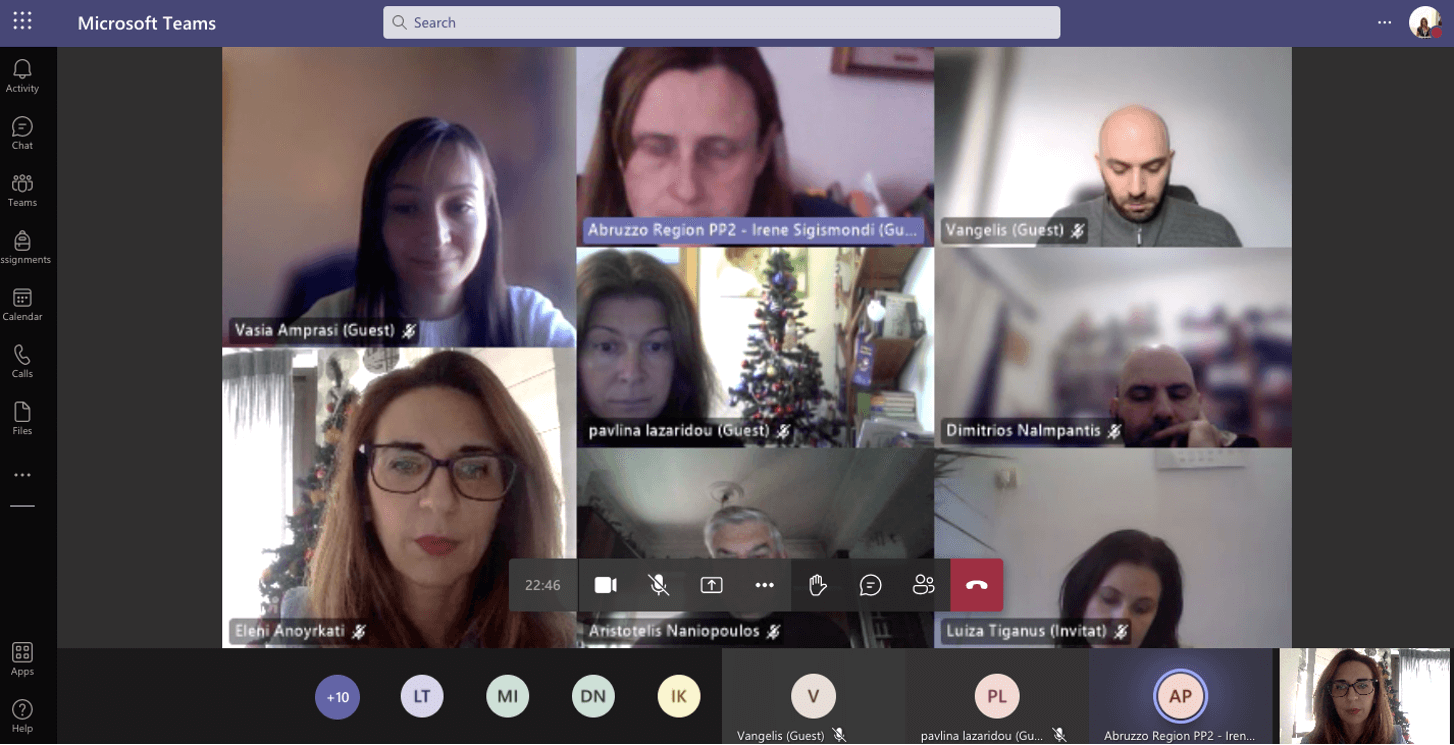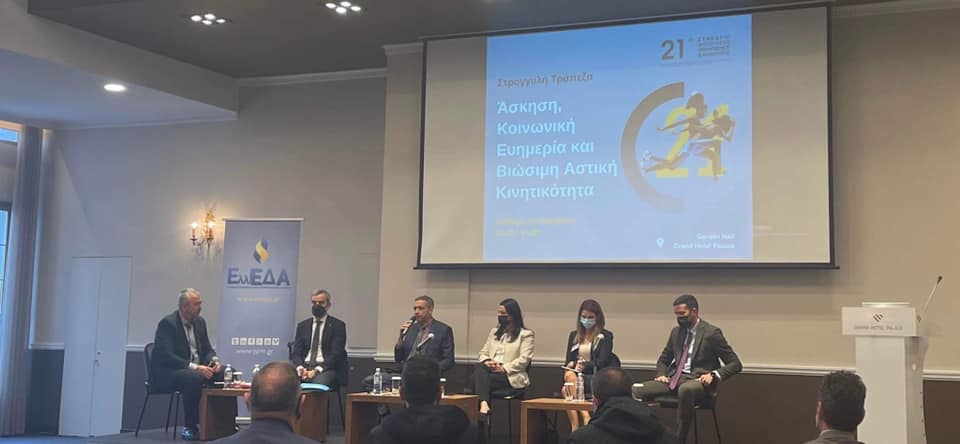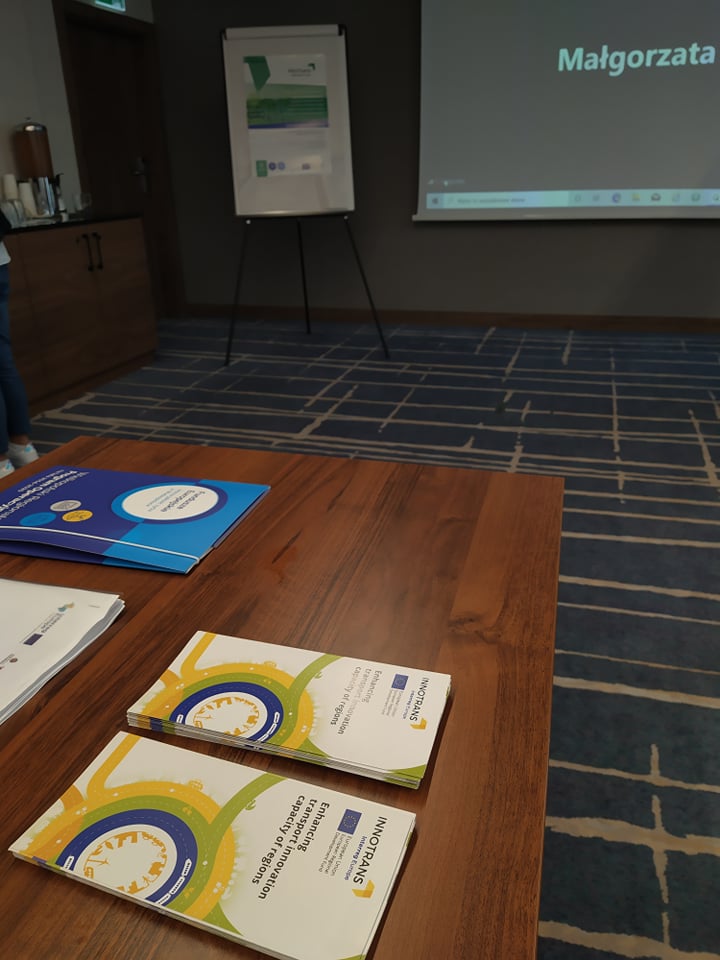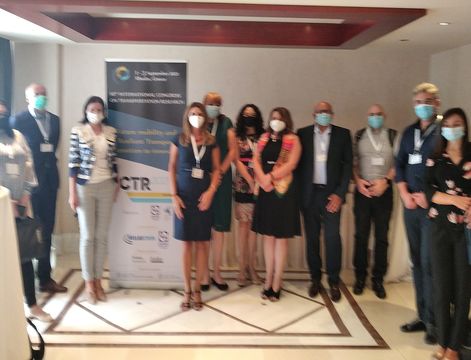The final 2-days meeting of Phase 1 of INNOTRANS project took place in Thessaloniki on 4th and 5th of December 2019. The interregional knowledge elicitation workshop and the study visit of the last semester of Phase 1 was realized with 22 participants including all the project partners as well as invited stakeholders from every participating region.
Knowledge elicitation workshop
The Aristotle University of Thessaloniki organized an interesting workshop based on the “world cafe method” with the aim to stimulate transport innovation capacity through the co-elaboration of policy recommendations and needed actions. All the participants were actively involved and contributed significantly to the discussions that took place by exchanging ideas, experiences, thoughts and concerns. The three main pillars that were analyzed:
• Research & Development: Innovation through the stakeholders’ cooperation, e.g. synergies, connection of research community and industry, research & innovation within the companies, etc.
• Technology & innovation on transport: Management of existing and expected impacts on, e.g. society, economy, environment, legal framework, etc.
• Transport innovation capacity governance: Supporting the enhancement of innovation capacity through e.g. funding and financing, intangible elements like coordination, facilitation, governance, planning and tangible elements like assets such as tools, infrastructure, platforms.
Study Visit
During the study visit of the 2nd day of the meeting, the participants had the opportunity to visit the headquarters of the public transport operator of Thessaloniki. A demonstration of the telematics system used on buses took place. It is a tailor-made system especially for the Organization of Urban Transportation of Thessaloniki (bus operator) which gathers data and provides information within the organization regarding the fleet management and control of the services provided as well as provides information on real-time to the users through various ways such as an application, a website, an electronic table at the bus stop, a telephone center, a megaphone for the blind people (at 20 bus stops). Also, there is a visual and audio information inside the bus during the route.
A guided tour along with a demonstration of all the Rotunda Monument’s accessibility provisions took place. The Monument’s interventions for people with physical or mental disability were implemented in the frame of AUTh’s project, the PROSPELASIS project. A tactual model as an exact copy of Rotunda combined with audio description through Wi-Fi for blind people, a wheelchair lift, a video tour produced in sign language for deaf people so as everyone can access and experience the Monument.
Also, the participants visited the headquarters of the International Port of Thessaloniki where a presentation of the Port’s innovation strategy and the launch of its upcoming innovation hub was delivered by the Managing Director. After that, a visit to the freight facilities of the container terminal was organised where the participants were informed about its operation and could see in real-time the cargo’s load as well as the vessels, the machinery used, the trucks and the numerous piled containers with goods.
An onsite demonstration of electric bikes/motorbikes produced by a local transport-related startup was delivered at the end of the study visit.
